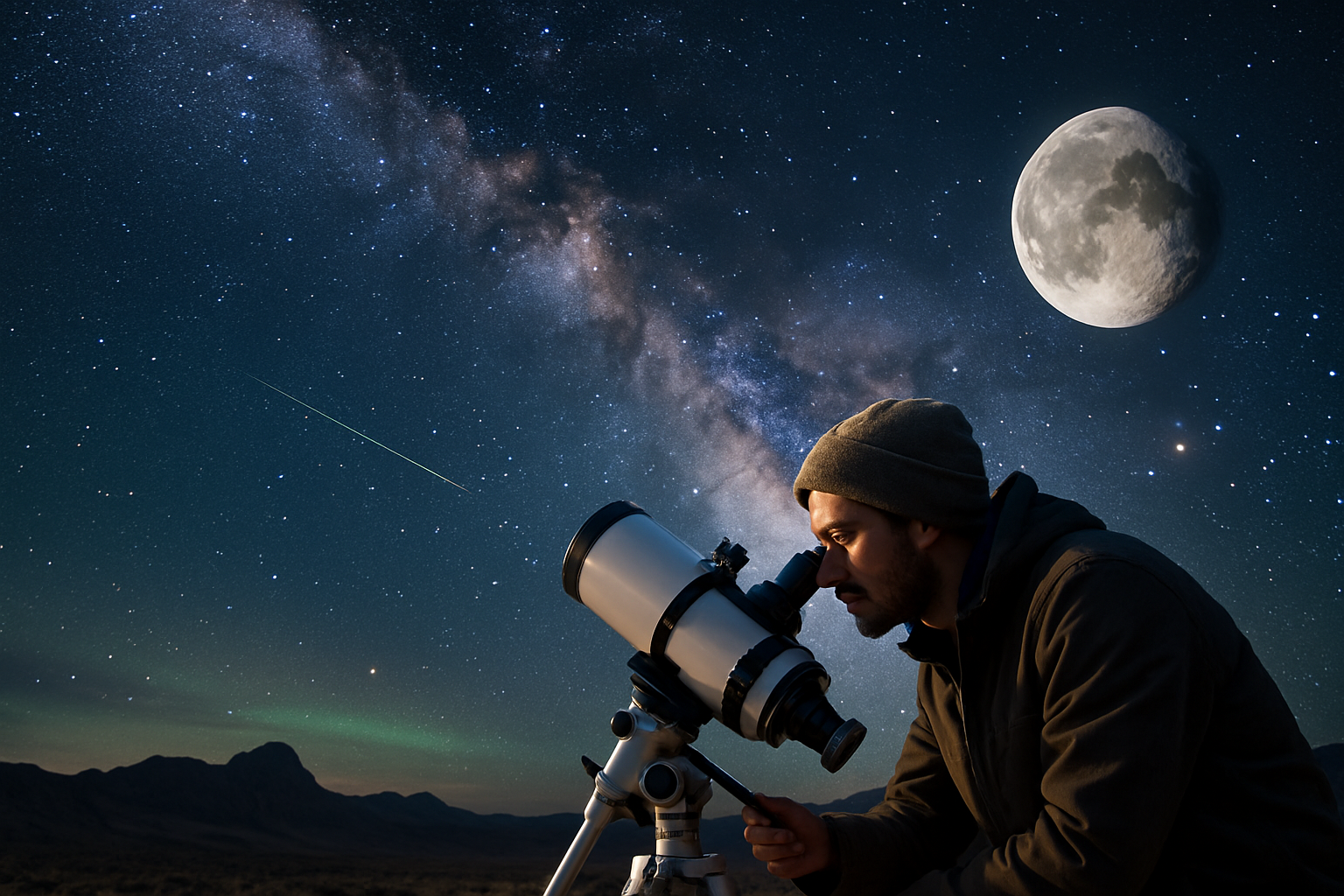Exploring the Rise of Astrotourism: Stargazing Vacations Take Flight
Imagine a vacation where the night sky becomes your destination. As city lights dim and celestial wonders take center stage, astrotourism is emerging as a captivating travel trend. This cosmic pursuit is drawing travelers to remote corners of the globe, offering a unique blend of science, nature, and adventure. From desert observatories to mountain-top retreats, astrotourism is redefining the concept of nightlife for wanderlust-driven stargazers.

The International Dark-Sky Association, founded in 1988, played a crucial role in promoting the preservation of dark skies and raising awareness about light pollution. This paved the way for the establishment of dark sky reserves and parks, which have become focal points for astrotourism.
The Celestial Appeal
Astrotourism’s allure lies in its ability to reconnect travelers with the cosmos. In an age of constant digital connectivity, the opportunity to disconnect and gaze upon the vastness of the universe offers a profound sense of perspective and wonder. This form of travel caters to a wide range of interests, from casual stargazers to serious amateur astronomers.
The experience of witnessing celestial events like meteor showers, eclipses, or the aurora borealis in optimal viewing conditions has become a bucket-list item for many. Additionally, the meditative aspect of stargazing aligns well with the growing trend of mindfulness in travel, attracting those seeking both adventure and introspection.
Destination: Dark Skies
As astrotourism gains traction, destinations around the world are capitalizing on their dark sky assets. The Atacama Desert in Chile, known for its exceptionally clear nights, has become a hotspot for astronomical tourism. High-end resorts in the area now offer stargazing tours and on-site observatories as part of their amenities.
In the United States, places like Death Valley National Park and the McDonald Observatory in Texas have developed robust astrotourism programs. These initiatives not only provide memorable experiences for visitors but also contribute to local economies and promote conservation efforts.
The Technology Factor
Advancements in astronomy technology have played a significant role in the growth of astrotourism. Portable telescopes and astrophotography equipment have become more accessible, allowing travelers to capture stunning images of the night sky. Apps and software that help identify celestial objects have also made stargazing more interactive and educational for novices.
Virtual planetariums and augmented reality experiences are being integrated into astrotourism offerings, enhancing the educational aspect of these trips. This blend of cutting-edge technology with the timeless beauty of the night sky creates a unique and engaging travel experience.
Challenges and Considerations
While astrotourism presents exciting opportunities, it also faces challenges. Light pollution remains a significant threat to dark sky preservation. Balancing tourism development with environmental conservation is crucial to maintain the very conditions that make astrotourism possible.
Climate change also poses a risk, as changing weather patterns can affect the visibility of night skies. Additionally, the influx of visitors to remote areas raises concerns about the impact on local ecosystems and communities.
Responsible astrotourism practices, such as adhering to leave-no-trace principles and supporting local conservation efforts, are essential for the long-term sustainability of this travel niche.
Stellar Tips for Aspiring Astrotourists
• Plan your trip around lunar phases - new moons offer the darkest skies
• Invest in red-light flashlights to preserve night vision
• Bring warm layers - temperatures can drop significantly at night
• Consider joining a guided tour for expert insights and access to equipment
• Research and respect local customs when visiting remote areas
• Use apps like Stellarium or Sky Map to enhance your stargazing experience
As we look to the stars for our next adventure, astrotourism offers a unique blend of science, nature, and wonder. This growing travel trend not only provides unforgettable experiences but also fosters a deeper appreciation for our planet and its place in the cosmos. By venturing into the darkness, travelers are finding new ways to illuminate their understanding of the universe and their place within it.






